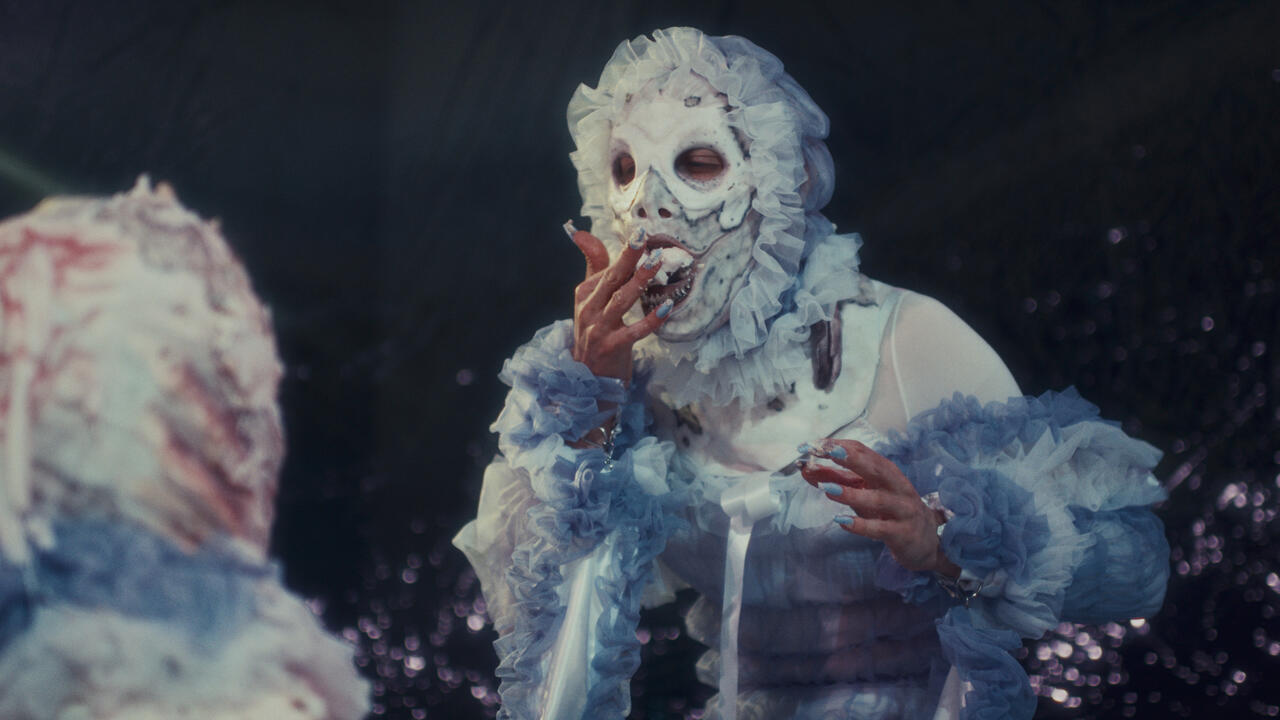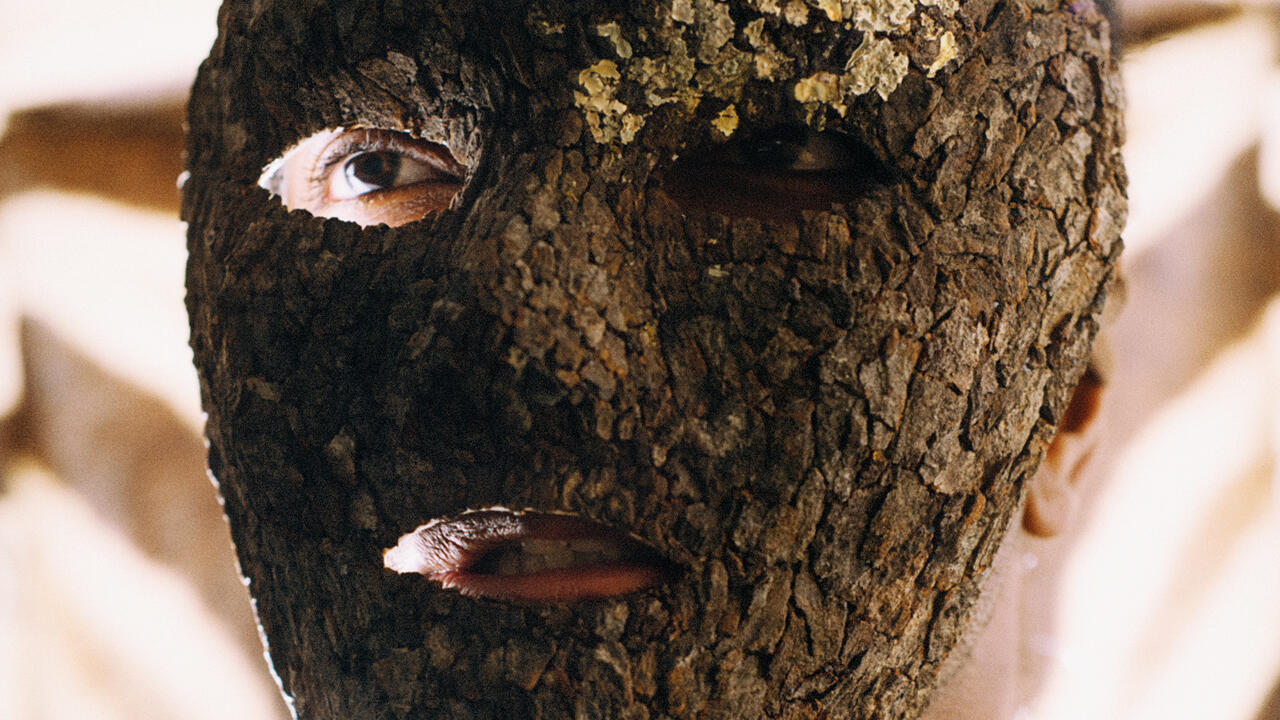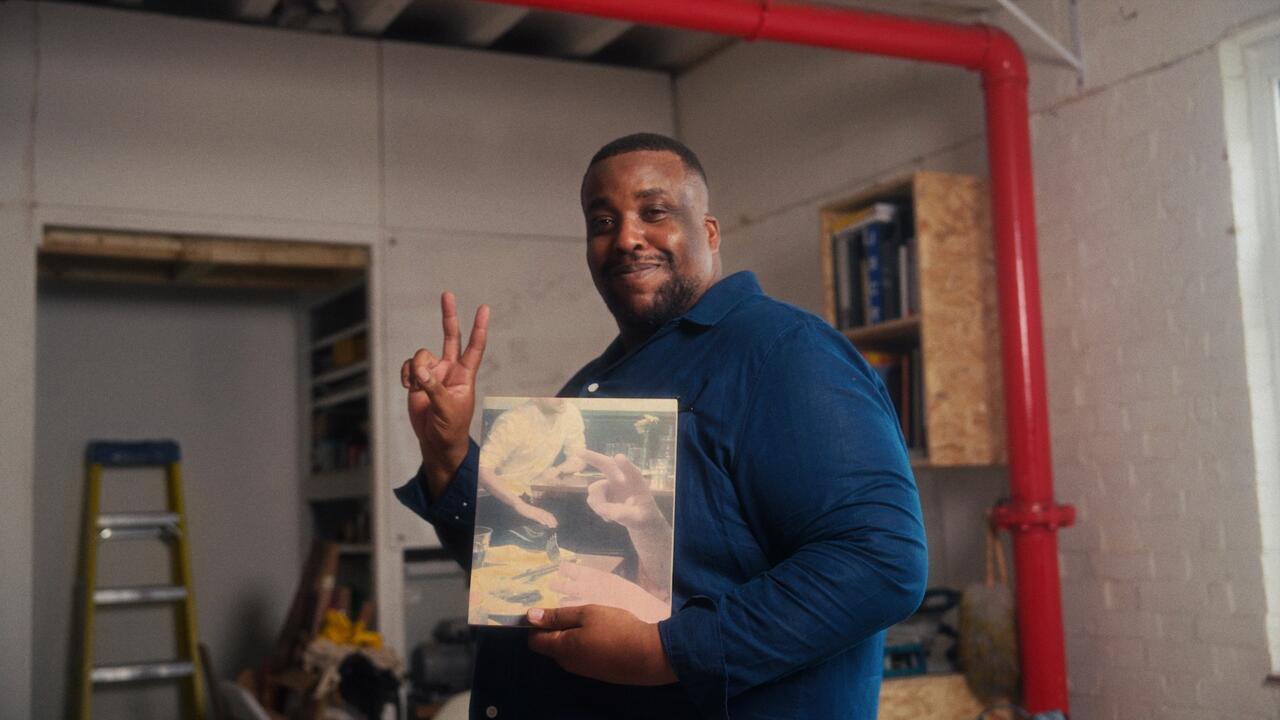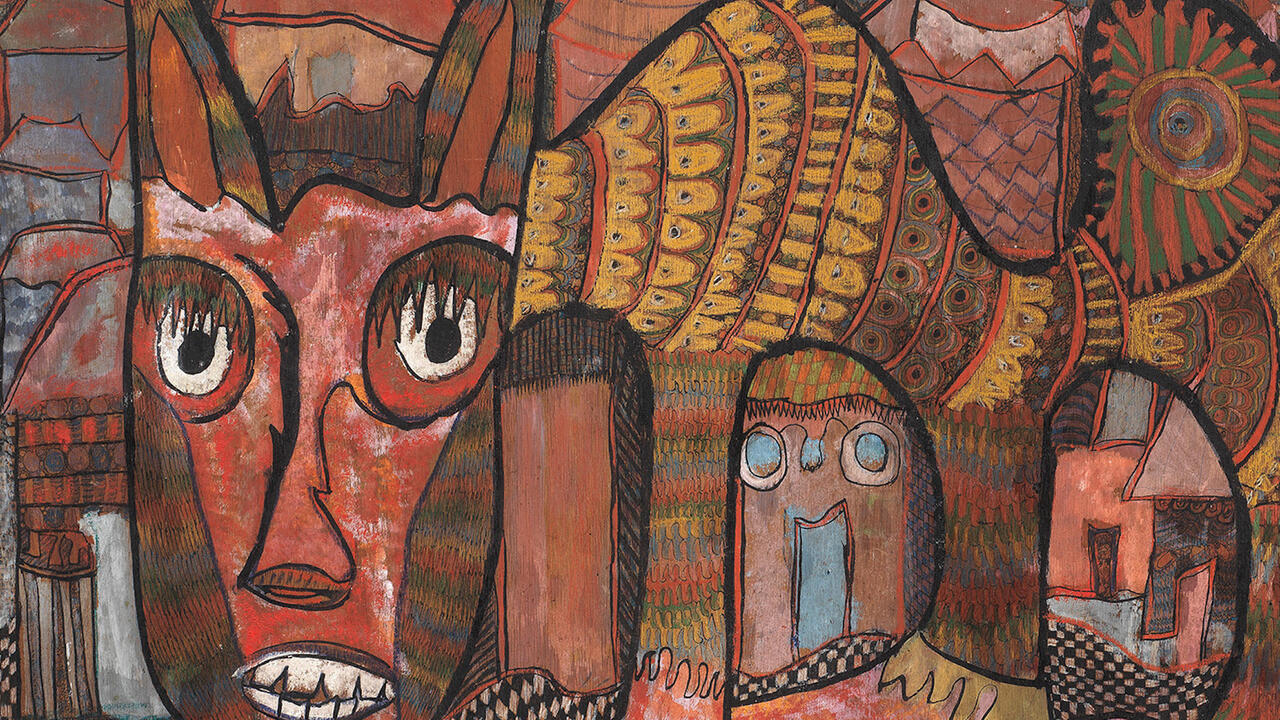Nathaniel Mellors
For his first solo show 'Black Gold' Nathaniel Mellors created a landscape of glowing TV screens and video projections that parodied and played with the world of game shows, soap operas, low-budget documentaries and wildlife programmes. Gameshow (all works 2001), for example, played on the genre's dramatic qualities, veering between tragedy and comedy. The video focuses on the dialogue, excellently scripted by the artist, between host and contestant: only their words are visible, subtitled on a blue screen and simultaneously spoken by a rather doleful computer. The playing of the game vied with a subtext created by the supposedly inconsequential chat between rounds - the stuff that lends such shows a degree (however meagre) of human interest, as the audience gets to know a little more about the contestant the further they progress. In these interchanges it becomes apparent that Jim likes cooking, but not for his wife; a theme returned to by a gleeful host, who pries into Jim's crumbling marriage. As the contestant, in a confused state, begins to open up emotionally, the host promptly shuts this Pandora's box, swiftly steering things back to the Super Escalator and the potential prizes. Gameshow successfully extrapolates from the world of television rather than imitating it. It doesn't simply mimic this happy, Saturday evening format for comic effect, but imagines its reassuringly ordered world falling apart.
Humour is more blatant in Mellors' simpler pieces, such as Gacy, which uses the format of confessional TV. An unloved and hugely gullible son tells how his father persuaded him to assume the identity of the murderer John Wayne Gacy so that he could turn him in and collect the reward money. The psychopathic father urges his son to undergo cosmetic surgery to affect a convincing transformation, but unfortunately also provides the instructive sketches for the surgeon, resulting in what the son describes as a 'clown's face' - information imparted with no more than a vague, nagging regret. This is something of a punchline, as the real John Wayne Gacy was dubbed 'the Killer Clown' (while in prison he produced several portraits of himself as such, notably used by Mike Kelley in a version of Pay for Your Pleasure, 1988).
Less darkly funny, but rather more in the vein of a well-honed one-liner, was Jailbreak. A monitor displayed a static image: a cartoon sketch of the UK's most notorious jailbird and all-round hard man Charles Bronson, cast in the pool of a spotlight. Captions 'revealed' (in the words of the documentary) the actor's salient - and blindingly obvious - features, such as his eyes, beard and sunglasses. Jailbreak explores the lamest aspects of documentary TV yet, paradoxically, its blunt, static form is the perfect way to portray a man who has been, is, and will be, staying put for the foreseeable future.
Less easy to sum up was the narcotic world of Inside Colonel Parker. The colonel of the title is a semi-historical figure: Parker was Elvis's manager but had a secretive nature, a shadowy past and an assumed identity. The camera slowly panned round a room in which this bloated man sits, with prosthetic cheeks, a drink by his side and a mean look in his eyes. It is an expression that suggests impenetrability, in opposition to the breezy ease of the title, which ironically points towards an intimate knowledge of its subject. A companion piece revealed the same elusive colonel collapsed in an elevator doorway. The rotund figure lies like a beached seal, helpless as the doors open and close on his slumped body. How could you get inside such a man, and why would you want to?
Acting as counterbalance to the directness of the monologues was a large video projection, Press and Hold Birds. In slow motion the viewer could have nature on tap; a wildlife programme in which leaves and grass float by and giant chickens puff up their plumage. A beguiling parody of the wildlife format, it is, however, unaccompanied by any commentary, stripped back to the essentials ofwhat such a programme could possibly offer: moving pictures of a semi-natural world - not quite wild, but a life of sorts. It provided a drifting, ambient centre to a room otherwise filled with broken relationships, prosthetic cheeks, impostors and serial killers.
















